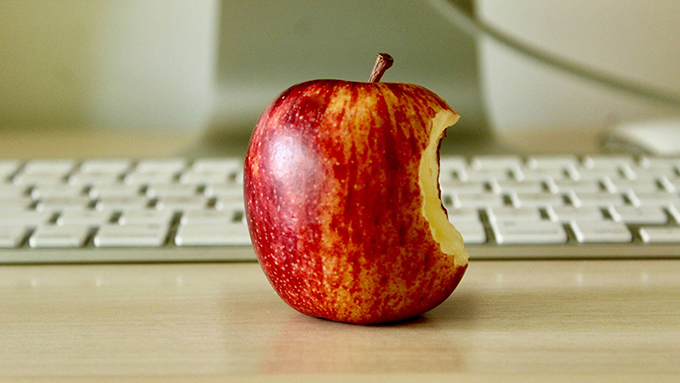Trademark Right Infringements on the Internet
Introduction
The fact that internet usage has become a determining factor of economy due to the expanding growth of e-commerce, disputes concerning industrial property rights in the virtual platform, and trademark right infringements right to the agenda[1]. In this manner, Industrial Property Law No. 6769 (“Industrial Property Law”) which is aimed towards the protection of registered trademarks like as previous Decree on the Protection of Trademarks numbered 556 (“Decree numbered 556”) that regulates the circumstances in which the usage of marks in a virtual platform shall be considered, expressly as trademark right infringements.
This Article analyzes the circumstances in which the usage of registered trademarks on the internet is considered as a trademark right infringement within the scope of the Industrial Property Law.
The Scope of the Protection of the Mark
Article7/3-D of Industrial Property Law explains the circumstances that represent express infringements of trademark rights through the usage of the mark on the internet. Pursuant thereto, the usage of the same, or similar, mark or the dignotions that constitute the mark on the internet so as to create a commercial effect, without a legitimate connection and in the forms such as area name, routing code, key word, etc. are considered as trademark right infringements. When it is analyzed in detail, legitimate connections may be in question in the context of the rights related to agency, sales representative, and other special contracts. Without a legitimate connection, the usage of the mark could be considered as a trademark right infringement. The Supreme Court, in a decision dated 2013, decided that the usage of the internet domain name that the defendant took in connection with its trade name, which was taken previously, is based on a legitimate right related to the usage of a mark within the scope of Article 9/2-E of Decree numbered 556 (newly Article7/3-D of Industrial Property Law).
Usage of a mark, or similar thereto, in an internet domain name or on a page content could be considered as trademark right infringement if it is in a way to create a commercial effect. For example, advertising, publicity, or sale activities. Moreover, the commercial effect could exist if there is usage as a routing code, key word in the backplane, with the purpose of being noted in the top rows of search engines, or on the pages that the right holder of the trade mark is so noted[2].
The lawmaker especially gives place also in the related article to the usage of the constituents of the trademark as domain name, routing code, key word, etc., and underlines that the usage of marks on the internet may represent infringements depending on the characteristics of the solid case. The usage of the sign constituting the mark, or similar thereto, as the electronic address of the web site, in other words, the domain name, may constitute infringement of a trademark right pursuant to the quality of usage, to the word included in the domain name, and to the scope of the website. Usage of the same, or the similar sign of the mark as the domain name, and in a way so as to create commercial effect, if the owner of the domain name does not have a previous right that is privileged and paramount, could be considered as an infringement of the trademark right. As a matter of fact, 11th Civil Chamber of the Court of Cassation, in its decision numbered 2010/391 E., 2011/8996 K., decided that if the internet domain name had been taken long ago, as acquiescence causes loss of right, then the action based on the trademark right infringement, and unfair competition due to usage of the domain name, will be dismissed[3].
As well, the Court of Cassation states that the usage of the mark, partially or wholly, in the internet domain name does not single-handedly constitute an infringement. Pursuant thereto, in a solid case, if the defendant, in its web site, provides services that are not within the registered scope of the trademark of the claimant, no infringement will come into question. However, if the trademark in question is a well-known mark, and one of the conditions stated under Article7/3-D of Industrial Property Law exists, its usage on the internet will be considered as a trademark right infringement. (, “Even if it is the same or similar mark previously registered or applied for registration, a mark could be used for different goods or services. But, if an improper benefit can be derived due to the notoriety of the mark which is previously registered or applied for the registration or the mark can fall into disrepute or the distinctive character of the mark can be damaged, the registration application of the new mark shall be rejected even for different goods or products, on request of the right holder of the trademark which is already registered or applied to be registered.”
Conclusion
Trademark right infringements are a kind of industrial property right infringements that are inevitable because of the determinant role of the internet in the world of commerce and the expansion of e-commerce. The Industrial Property Law determines the conditions of trademark right infringements on the internet as numerus clausus. Thus, the legislator aimed to define particular regulatory methods against trademark right infringements via the internet.
[1] Çolak Uğur, Türk Marka Hukuku, 3rd Edition, İstanbul 2016 p.357.
[2] Çolak Uğur, Türk Marka Hukuku, 3rd Edition, İstanbul 2016 p 459.
[3] Çolak Uğur, Türk Marka Hukuku, 3rd Edition, İstanbul 2016 p 463.
All rights of this article are reserved. This article may not be used, reproduced, copied, published, distributed, or otherwise disseminated without quotation or Erdem & Erdem Law Firm's written consent. Any content created without citing the resource or Erdem & Erdem Law Firm’s written consent is regularly tracked, and legal action will be taken in case of violation.
Other Contents

The Law on Intellectual and Artistic Works No. 5846 (“LIAW”) conditions the recognition of an intellectual product as a “work” (eser) under the LIAW—and thus its protection—on two fundamental criteria: the intellectual product must fall within one of the categories of works explicitly enumerated in the LIAW and bear...

In today's competitive business environment, the protection of trademarks plays a vital role in maintaining the competitive advantage of businesses and ensuring consumer trust. In this context, the protection of well-known trademarks is of particular importance in preserving the commercial value and reputation of...

It is observed that there are changes in the legislation and judicial decisions as to whether the use of a previously registered trademark or a trademark for which a registration application has been filed can be considered as trademark infringement by third parties by using the trademark as a trade name...


Today, the globalization of economic activities leads to the transfer of numerous personal data internationally during the daily operations of companies. Therefore, like many national and international data legislations, Law No. 6698 on the Protection of Personal Data (“PDPL” or “Law”) includes protective...

The relationship between the author and the product of their creative activity is protected by moral rights. The moral rights of the author set out in the Intellectual and Artistic Works Act numbered 5846 (“IAWA”) include the authority to disclose the work to the public, the authority to designate the name...

The Court of Cassation has evaluated the criteria related to the similarity of the trademark in all of these decisions, and while showing how the criteria will be applied, it has also helped to determine the boundaries of the term “likelihood of confusion”. In this article, four different 2022 decisions...

The right to property, which is one of the concepts and values underlying the liberal economic and legal system, regulates the ownership relationship between the person and goods. The scope of the term “goods,” which is the subject of the concept of property...















